Now that the New Year has well and truly started, maybe it’s a good time to make time for you – just to BE.
You may have read or heard about Mindfulness and how it helps you become more present, enabling you to ‘live your life more fully. You may be curious; it’s become a bit of a buzzword but there are still so many misconceptions about the practice that act as a barrier preventing people from trying meditation and receiving its profound benefits.
Deepak Chopra wrote an article ‘7 Myths of Meditation’ for The Huffington Post. Here, I offer a shortened version of the article…
1: Meditation is difficult.
Truth: This myth is rooted in the image of meditation as an esoteric practice reserved only for saints, holy men, and spiritual adepts. In reality, when you receive instruction from an experienced, knowledgeable teacher, meditation is easy and fun to learn. The techniques can be as simple as focusing on the breath or silently repeating a mantra. One reason why meditation may seem difficult is that we try too hard to concentrate, we’re overly attached to results, or we’re not sure we are doing it right.
2: You have to quiet your mind in order to have a successful meditation practice.
Truth: This may be the number one myth about meditation and is the cause of many people giving up in frustration. Meditation isn’t about stopping our thoughts or trying to empty our mind — both of these approaches only create stress and more noisy internal chatter. We can’t stop or control our thoughts, but we can decide how much attention to give them. Although we can’t impose quiet on our mind, through meditation we can find the quiet that already exists in the space between our thoughts. Sometimes referred to as “the gap,” this space between thoughts is pure consciousness, pure silence, and pure peace.
Be assured that even if it feels like you have been thinking throughout your entire meditation, you are still receiving the benefits of your practice. You haven’t failed or wasted your time. “The thought I’m having thoughts may be the most important thought you have ever thought, because before you had that thought, you may not have even known you were having thoughts. You probably thought you were your thoughts.” Simply noticing that you are having thoughts is a breakthrough because it begins to shift your internal reference point from ego mind to witnessing awareness. As you become less identified with your thoughts and stories, you experience greater peace and open to new possibilities.
3: It takes years of dedicated practice to receive any benefits from meditation.
Truth: The benefits of meditation are both immediate and long-term. You can begin to experience benefits the first time you sit down to meditate and in the first few days of daily practice. Many scientific studies provide evidence that meditation has profound effects on the mind-body physiology within just weeks of practice. For example, a landmark study led by Harvard University and Massachusetts General Hospital found that as little as eight weeks of meditation not only helped people experience decreased anxiety and greater feelings of calm; it also produced growth in the areas of the brain associated with memory, empathy, sense of self, and stress regulation.
4: Meditation is escapism.
Truth: The real purpose of meditation isn’t to tune out and get away from it all but to tune in and get in touch with your true self — that eternal aspect of yourself that goes beyond all the ever-changing, external circumstances of your life. In meditation you dive below the mind’s churning surface, which tends to be filled with repetitive thoughts about the past and worries about the future, into the still point of pure consciousness. In this state of transcendent awareness, you let go of all the stories you’ve been telling yourself about who you are, what is limiting you, and where you fall short — and you experience the truth that your deepest self is infinite and unbounded.
5: I don’t have enough time to meditate.
Truth: There are busy, productive executives who have not missed a meditation in 25 years, and if you make meditation a priority, you will do it. If you feel like your schedule is too full, remember that even just a few minutes of meditation is better than none. We encourage you not to talk yourself out of meditating just because it’s a bit late or you feel too sleepy.
In life’s paradoxical way, when we spend time meditating on a regular basis, we actually have more time. When we meditate, we dip in and out of the timeless, spaceless realm of consciousness… the state of pure awareness that is the source of everything that manifests in the universe. Our breathing and heart rate slow down, our blood pressure lowers, and our body decreases the production of stress hormones and other chemicals that speed up the aging process and give us the subjective feeling that we are “running out of time.”
In meditation, we are in a state of restful alertness that is extremely refreshing for the body and mind. As people stick with their meditation ritual, they notice that they are able to accomplish more while doing less. Instead of struggling so hard to achieve goals, they spend more and more time “in the flow” — aligned with universal intelligence that orchestrates everything.
6: Meditation requires spiritual or religious beliefs.
Truth: Meditation is a practice that takes us beyond the noisy chatter of the mind into stillness and silence. It doesn’t require a specific spiritual belief, and many people of many different religions practice meditation without any conflict with their current religious beliefs. Some meditators have no particular religious beliefs, or are atheist or agnostic. They meditate in order to experience inner quiet and the numerous physical and mental health benefits of the practice — including lowered blood pressure, stress reduction, and restful sleep. Meditation helps us to enrich our lives. It enables us to enjoy whatever we do in our lives more fully and happily — whether that is playing sports, taking care of our children, or advancing in our career.
7: I’m supposed to have transcendent experiences in meditation.
Truth: Some people are disappointed when they don’t experience visions, see colors, levitate, hear a choir of angels, or glimpse enlightenment when they meditate. Although we can have a variety of wonderful experiences when we meditate, including feelings of bliss and oneness, these aren’t the purpose of the practice. The real benefits of meditation are what happens in the other hours of the day when we’re going about our daily lives. When we emerge from our meditation session, we carry some of the stillness and silence of our practice with us, allowing us to be more creative, compassionate, centered, and loving to ourselves and everyone we encounter.
As you begin/continue your meditation journey, here’s some guidelines to help:
- Have no expectations. Sometimes the mind is too active to settle down. Sometimes it settles down immediately. Sometimes it goes quiet, but the person doesn’t notice. Anything can happen.
- Be easy with yourself. Meditation isn’t about getting it right or wrong. It’s about letting your mind find its true nature.
- Don’t stick with meditation techniques that aren’t leading to inner silence. Find a technique that resonates with you. You can simply follow the in and out of your breathing, not paying attention to your thoughts at all. The mind wants to find its source in silence. Give it a chance by letting go.
- Make sure you are alone in a quiet place to meditate. Unplug the phone. Make sure no one is going to disturb you.
- Really be there. If your attention is somewhere else, thinking about your next appointment, errand or meal, of course you won’t find silence. To meditate, your intention must be clear and free of other obligations.
This blog was written by Joanne O’Malley, Mindfulness at Work.





